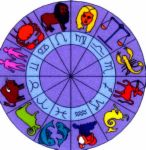what is astrology?
By kavita23
@kavita23 (2995)
India
11 responses
@arseniajoaquin (1732)
• Philippines
3 Jan 07
The Greek word aster is translated into the English word star. The Greek word logos meaning word is usually used to mean study. Literally therefore astrology means a word or study of stars.
In creation, the sun, moon, and stars were created on the fourth day - that was about 6,000 years ago. I have started the topic Creation and if you want to know further information, pls go to my Profile and open the topic Creation or any topic you may be interested in especially those relating to the Holy Bible.
@valmiki9 (1171)
• India
30 Dec 06
Astrology is a science which can give a very clear out line of your life from your birth chart called Horoscope. This chart contains the deatails of your birth.
Name, Date of birth (real one) place of birth, and time of birth.
Another form of astrology is the answering of questions on the basis of time and place of question
@ichigo111 (491)
• Canada
30 Dec 06
Human kind is not meant to know the future. If a warrior goes to battle knowing he will lose, he will not fight to the best of his ability. The warrior would rather fight not knowing whether or not he will be alive in the end. The warrior would rather fight for the excitement of the battle and the uncertainty of the outcome. Future is only revealed if it was future that was meant to be rewritten. Otherwise, what is written cannot be changed.
@ndraj_2006 (1422)
• India
28 Dec 06
The study of the positions and aspects of celestial bodies in the belief that they have an influence on the course of natural earthly occurrences and human affairs.
Astrology is a group of systems, traditions, and beliefs in which knowledge of the relative positions of celestial bodies and related information is held to be useful in understanding, interpreting, and organizing knowledge about personality, human affairs, and other terrestrial events. A practitioner of astrology is called an astrologer, or, less often, an astrologist. Historically, the term mathematicus was used to denote a person proficient in astrology, astronomy, and mathematics.
@sudhajan (1219)
• France
28 Dec 06
Astrology is a very ancient science. May be more than 5000 years old... If it is a total bluff can it last so many years... Also today science are proving some statements are true.
And there are lots of sites that helps to learn astrology. Jest type learn astrology in yahoo search you will find lots...
Some links are fallows...
http://www.astrologycourse.com/...
http://www.yournetastrologer.com/index.h...
http://www.goravani.com/lessons/lessmenu...
Learn astrology ... Nothing to LOOS...
Have some fun...
@jeepstergirl (396)
• United States
28 Dec 06
the study of the positions of celestial bodies (planets, stars, etc) in the belief that they hold influence over our lives (money, love, luck, etc). Horoscopes come from astronomy.
@adnan007 (1083)
• India
28 Dec 06
Form of divination based on the theory that the movements of the celestial bodies—the stars, the planets, the sun, and the moon—influence human affairs and determine the course of events. Celestial phenomena have been the object of religious sentiment since earliest times (see moon worship; sun worship). The Chaldaeans and the Assyrians were the first to discard their sky gods in favor of a nondeistic system of divination founded upon astronomy and numerology. They saw the heavenly bodies as exerting an influence upon the lives of individuals and the destinies of empires. Generally, future events were believed determined beforehand by a universal order that was a result of the motions of the planets and stars. The practices of astrology spread throughout the ancient Middle East, Asia, and Europe, but with the rise of Christianity, which emphasized divine intervention and free will, interest in astrology subsided, although astrologers continued to flourish. During the European Renaissance astrology as a form of divination regained popularity, due in part to the rekindled interest in science and astronomy. The European astrologer, considered a scholar exploring the mysteries of the universe through science and reason, was held in high esteem in the community for many years. However, in the 16th and 17th cent., Christian theologists waged war against astrology. In 1585 astrology was officially condemned in a bull of Pope Sixtus V, and in 1631, Pope Urban VIII reinforced this with another bull. At the same time the astronomical work of such men as Copernicus, Tycho Brahe, Kepler, and Galileo was undermining the tenets of astrology. Astrology, however, continued to be practiced. All of the aforementioned scientists remained practicing astrologers, as did other great thinkers such as Descartes and Newton; moreover, Copernican theory did not find sudden and widespread acceptance. Gradually, however, astrology declined, although this form of divination is still very much alive. One's horoscope is a map of the heavens at the time of one's birth, showing the position of the heavenly bodies in relation to the 12 “houses” or signs through which they pass (see zodiac) and their positions in relation to each other. Each house has as its “lord” one of the heavenly bodies; the one in the “ascendant” is the one of greatest significance to the inquirer, supposedly endowing him with his temperamental qualities, his tendencies to particular diseases, and his liability to certain fortunes or calamities.













